
Greetings to all,
I wish you all the best.
This is a personal reflection of my encounter with reading comprehension in my childhood and parent language.
Sincerely, I was not thinking of translating it, perhaps because I fear that many will not understand the content, since for example, the pronunciation of the vowels, at least, the English speakers, is different from the Spanish and I do not know how to represent those sounds in English, so that it sounds, as it sounds in Spanish.
I hope you understand and if you do not wish to read, it is valid and welcome.
Now if you decide to continue, I hope you can take advantage of this anecdotal and encourage even more your curiosity to understand our language, just as many of us are making the effort to understand yours (English).
Welcome.
Translated with www.deepl.com
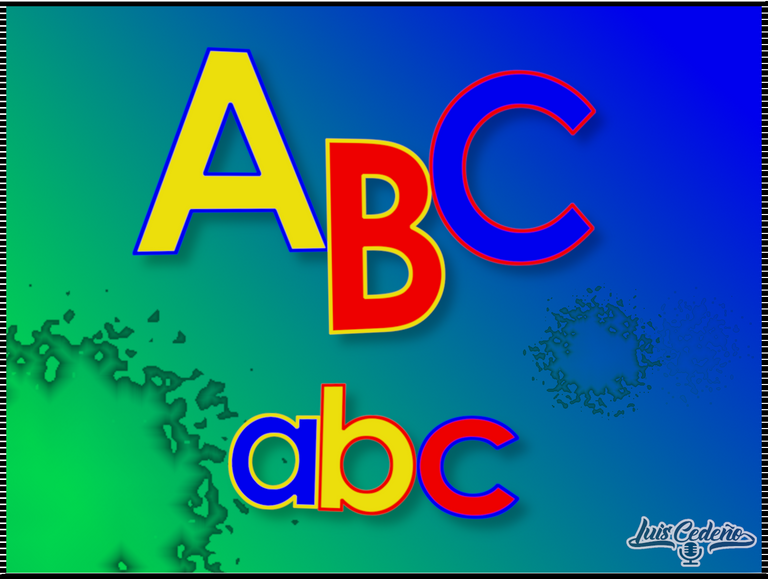
I am going to talk about something that happened to me once, that I remember briefly, and although interesting to me, maybe you will notice some similarity about it or not. I am referring to the time when I learned to read.
We all have to communicate using symbols and their combinations, according to the uses and customs of any civilization. That is, in addition to learning to communicate orally, we must also communicate in writing, respecting the rules that each language has to give the correct meaning to words and better present our ideas.
I do not claim to be an authority on the subject, because I use the symbols in writing trying to make you read each sentence, as I think it should be perceived.
This arose from conversations with teachers who have told me their experiences on the subject; therefore, here I present part of my memories in that sense, in addition to my sincere opinion based on my interaction as a student, which I hope you will understand and also enjoy...
When I went to my uncles' houses, the games with my beloved contemporary cousin were to "school"; perhaps because my beloved uncle, her father and mine by admiration and respect, is an educator (now retired and known as "Coquito" Hernández in Ciudad Guayana. Currently and at his age, activist for the rights of teachers, against the Venezuelan government).
At that time, my cousin was the teacher and she used to make us read and write as a game. Which I found boring, but that's what we played. However, I'm not sure if at some point I knew how to read or not, but I am sure that from very early on, I recognized many or all the letters of our alphabet, thanks to those "hilarious" moments of games.
Moving even further forward in time, I also remember my kindergarten teacher, Clara-not Piké's-who would put us on "verbal calligraphy" by making us repeat syllables as follows:
- "M" with "A",
- "MA"; we would say...
- the "M" with the "A",
- "MA",
- What does it say?
- Mamá," the students would answer.
- The "P" with the "A",
- "PA";
- the "P" with the "A"
- "PA";
- What does it say?
- Papá!" - we would answer again, without knowing why we were doing it; we were simply automatons at that moment.
Also at home, with the help of my grandmother and belt in hand in case I failed, I learned those cute phrases from the lesson that said "mi mama me mima" and "mi mama me ama ". It was rough, but I learned them.
But in all of that, our brain, which seems designed to adapt quickly to any circumstance, was registering something that my unconscious was going to require later, to then make the necessary connections and give me light and understanding. Soon, I noticed, for example, that not only did I know it said "Pepsi" from the logo, but I recognized each element (letter) and understood how each syllable sounded to build the phoneme. But to get there first, one day the teacher put us to practice:
- "M" with "A",
- "MA";
- the "P" with the "A",
- "PA";
- What does it say?
- Mapa - I answered along with my little friends, and immediately turned my face to the world map I had hung on the wall to look for the letters above it and it did indeed say, "MAP!"
So in my case the connections were made and... As soon as the lessons stopped, I decided to get up from my desk and walk around every corner, curiously checking every paper stuck on the wall... Anyway, I couldn't stop reading that day everything that was on the walls of the classroom.
My teacher scolded me for standing without permission. It was the time of physical punishments, so I could have received a few slaps on the hands, hair pulls on the sideburn or on the ear, I don't remember, because children don't hold grudges...
I do, teacher... because I'm not a child anymore! 🤣🤣🤣.
What perhaps, she didn't understand is that I had discovered something and needed to put it to the test, not even in practice, but "to the test". I wanted to match letters and numbers in the visuals arranged all over the classroom walls.
Of course, I wasn't very quiet either... No sir!...
Note: Those times of physical punishment in schools, ended in Venezuela in the mid 80's. Maybe they should come back... Maybe not, but when we see the wave of violence unleashed in the country, something seems to be missing.
Something that we do keep is that when we learned something, we helped the laggards, not without first making fun of their momentary "inability" to understand and we would say things as a joke, such as: "donkey", and laughing at the same time.
What if the teacher demanded that we respect her? Yes, of course. Then we would help that mischievous classmate we liked and for some reason didn't understand without knowing why, until he got it or almost got it. And if he lagged a lot, we would abandon him, because society, unconscious or not, discriminates and separates the fittest from the least capable...
Going back to a time before lessons with syllables in kindergarten, I had to learn the letters and, in my childhood days - which was not too long ago - the alphabet had 30 letters and we had to learn them all, and then practice until we learned how each one sounded when it had one or more vowels in front or behind it.
Yes, my childhood alphabet had 30 letters.
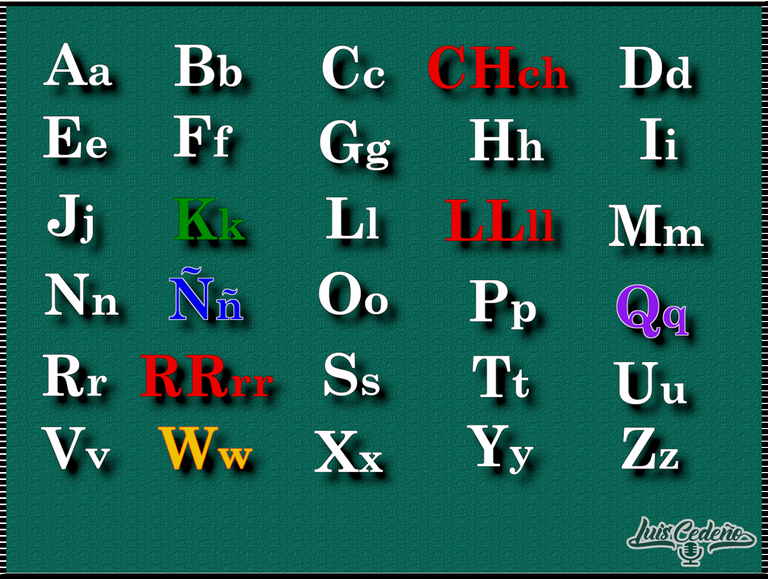
Only there were actually three (in red) represented digraphically, that is, they were formed by two letters, namely: "CH", which we pronounced: "Che"; the "LL", pronounced: "Elye" and "RR", whose pronunciation was "Erre"; while the previous one - the "R" - we pronounced "ere". The others were pronounced the same -although nowadays, because of TV and internet, the "LL" (elye) some call it double "ele"; the labidental "V", they call it "uve", and the double "ve" - "W"- now called double "uve". While the "Y", pronounced "Ye", remains the same, although it causes confusion in many people, because people of influence call it "Greek i", and that includes some teachers. All because it replaces the vowel "I" in sentences that use it as a connective.
However, it should be mentioned that parents have made contributions to confuse, when they use the "Y" to replace the "I" in proper names and generally, in the last syllable. There are exceptions, for example: Joandrys or Andreybis. Although I have seen cases where the "YE" replaces the "I", depending on the number of "ies" in the noun.
Many of these idioms -if the term fits- have not yet been assimilated, at least in my region and I observe that it is my generation and the previous one, the one that is more reluctant to adopt them and they correct their children and/or grandchildren to maintain the uses and customs corresponding to their time or mine, without realizing that the language or the language is evolving because it is alive.
While millenials... ah! millenials... Well... let's leave it at that.
Maybe this topic will generate some confusion or raise some issues in other regions, due to the fact that Castilian, is the mother tongue in most of America and in Europe, in some regions of Spain and I don't know where else. And I say this making reference to the fact that Spanish and Castilian are really two different things; Spanish is more attached to how the words should sound correctly, while we, those of America, are more relaxed when speaking and that can be seen in the seseo, perennial in every word, indistinctly spelled with "S", "C" and "Z" versus the ceseo of the Spanish that apply it to those that are written with "C" and "Z" respectively.
What I do want you to understand is that what is written here is the product of my reflections, based on my personal experiences. I insist: I am not an authority of the language... our common language.
But I do know that the forms vary between regions of the same country, and even beyond our borders.
And finally, how were you taught the primer in your time?
Tell me about your experiences, so that I can get to know you.

Keep on beautifully handsome.
Greetings and blessings.
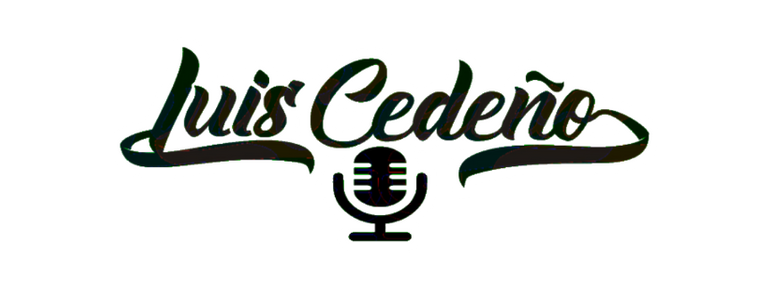
Always alummno in all my rrss. Yes, with double "m".
Final notes:.
- The stickers were created by me in GIMP from images taken from the web. For each one I leave the link for consultation.
- I am not a designer, however, the alphabet designs were created by me in GIMP and have my logo.
- If there is a foreign image or video, used for demonstrative or disruptive purposes, I try to place the link that will direct you to the author's or owner's web page.
- If images with my logo appear, it is because they belong to me and were taken with different devices in the course of time.
- If you have any concern about the visual material (which is not the purpose of the post), please let me know promptly to take into account your observation.
Thanks for your understanding.


Voy hablar de algo que me pasó alguna vez, que recuerdo someramente, y aunque interesante para mí, quizá ustedes noten alguna similitud al respecto o no. Me refiero al momento en que aprendí a leer.
Todos debemos comunicarnos empleando los símbolos y sus combinaciones, según los usos y costumbres de cualquier civilización. Es decir, además de aprender a comunicarnos oralmente, también debemos hacerlo de forma escrita; respetando las reglas que tiene cada idioma para dar el sentido correcto de las palabras y presentar mejor nuestras ideas.
No pretendo ser una autoridad en la materia, porque empleo los símbolos en la escritura intentando que ustedes lean cada frase, según considero debe percibirse.
Esto surgió de conversaciones con maestros que me han contado sus experiencias acerca del tema; por eso, acá les presento parte de mis memorias en tal sentido, además de mi opinión sincera basada en mi interacción como alumno, que espero las comprendan y también les divierta…
Cuando iba a la casas de mis tíos, los juegos con mi amada prima contemporánea eran a “la escuela”; tal vez porque mi amado tío, su padre y mío por admiración y respeto, es educador (hoy jubilado y conocido como “Coquito” Hernández en Ciudad Guayana. Actualmente y a su edad, activista por los derechos del docente, contra el gobierno venezolano).
Entonces, mi prima era la maestra y nos ponía a leer y escribir a modo de juego. Cosa que me parecía aburrido, pero era lo que jugábamos. Sin embargo, no estoy seguro de si en algún momento ya sabía leer o no, pero si estoy seguro que desde muy temprano, reconocía muchas o todas las letras de nuestro abecedario, gracias a esos “divertidísimos" momentos de juegos.
Adelantándonos aun mas en el tiempo, recuerdo también a mi maestra de kínder, Clara —no de Piké— que nos ponía “caligrafías verbales” haciéndonos repetir sílabas de la forma siguiente:
—la “M” con la “A”,
—“MA”; decíamos…
—la “M” con la “A”,
—“MA”,
—¿qué dice?
—¡Mamá!— respondíamos los alumnos.
—La “P” con la “A”,
—“PA”;
—la “P” con la “A”
— “PA”;
—¿Qué dice?
—¡Papá!— volvíamos a responder, sin saber por qué lo hacíamos; éramos simplemente autómatas en ese momento.
También en la casa, con la ayuda de mi abuelita y cinturón en mano por si fallaba, aprendí aquellas lindas frases de la lección que decía ”mi mamá me mima” y “mi mamá me ama”. Fue rudo, pero me las aprendí.
Pero en todo eso, nuestro cerebro que parece diseñado para adaptarse rápidamente a cualquier circunstancia, estaba registrando algo que mi inconsciente iba a requerir mas adelante, para luego hacer las conexiones necesarias y darme luz y el entendimiento. Pronto, noté, por ejemplo, que no solo sabía que decía “Pepsi” por el logotipo, sino que reconocía cada elemento (letra) y entendía cómo sonaba cada sílaba para construir el fonema. Pero para llegar a ello primero pasó, que un día la maestra nos puso a practicar:
—la “M” con la “A”,
—“MA”;
—la “P” con la “A”,
—“PA”;
—¿Qué dice?
—Mapa— respondí junto a mis amiguitos, e inmediatamente volteé la cara hacia el mapa mundi que había colgado en la pared a buscar las letras que tenía arríba y efectivamente decía: "¡MAPA!"
Entonces en mi caso se hicieron las conexiones y… Tan pronto cesaron las lecciones, decidí levantarme del pupitre y pasear por cada rincón, revisando con curiosidad cada papel pegado en la pared… En fin, no pude para de leer ese día todo lo que había en las paredes del salón.
Mi maestra me regañó por estar de pie, sin permiso. Era la época de los castigos físicos, así que pude haber recibido unos reglazos en las manos, halones de pelo en la patilla o de oreja, no recuerdo, porque lo niños no guardan rencor...
¡Yo si maestra... porque ya no soy niño! 🤣🤣🤣.
Lo que tal vez, ella no entendió es que yo había descubierto algo y necesitaba ponerlo a prueba, ni siquiera en práctica, sino “a prueba”. Quería relacionar letras y números en los visuales dispuestos por todas las paredes del aula.
Por supuesto que yo tampoco era muy tranquilo… ¡No señor!…
Nota: Esos tiempos del castigo físico en los colegios, acabaron en Venezuela a mediados de los 80’s. Quizá deban volver… Aunque algunos “expertos” dicen que no, pero cuando vemos la ola de violencia desatada en el país, pareciera estar faltando algo.
Algo que si mantenemos es que cuando aprendíamos alguna cosa, ayudábamos a los rezagados, no sin antes burlarnos de su momentánea “incapacidad” de comprender y le decíamos cosas a modo de broma, como: “burro”, y riéndonos a un mismo tiempo.
¿Qué si la maestra nos exigía respetar?... Si, por supuesto. Entonces ayudábamos a aquel compañero de travesuras que nos caía bien y que por alguna razón no comprendía sin saber el por qué, hasta que lo conseguía o casi lo conseguía. Y si se rezagaba mucho, pues lo abandonábamos, porque la sociedad inconsciente o no: discrimina; y separa a los mas aptos de los menos capacitados…
Regresando a un tiempo anterior a las lecciones con las sílabas en el kinder, tuve que aprenderme las letras y, en mis tiempos de infancia —que fue no hace mucho— el abecedario tenía 30 letras y debíamos aprenderlas todas, para luego practicar hasta aprender cómo sonaba cada una cuando tenía una o mas vocales adelante o atrás.Si, el abecedario de mi infancia tenía 30 letras.

Solo que en realidad habían tres (en rojo) representadas digráficamente, es decir, que estaban formadas por dos letras, a saber: “CH”, que la pronunciábamos: “Che”; la “LL”, pronunciada: “Elye” y “RR”, cuya pronunciación era “Erre”; mientras que la anterior —la “R”— la pronunciábamos “ere”. Las demás se pronunciaban igual —aunque hoy en día, por causa de la tv e internet, la “LL” (elye) algunos la llaman doble “ele”; la “V” labidental, la llaman uve y la doble “ve” —“W”— ahora llamada doble “uve”. Mientras que la “Y”, pronunciada “Ye”, sigue siendo igual, a pesar que causa confusión en mucha gente, porque personas de influencia la llaman “i griega”, y eso incluye a algunos maestros. Todo porque sustituye a la vocal “I” en las oraciones que la llevan como conectivo.
Sin embargo, hay que mencionar que los padres han hecho aportes a confundir, cuando emplean la “Y” para sustituir la “I” en los nombres propios y generalmente, en la última sílaba. Hay excepciones, por ejemplo: Joandrys o Andreybis. Aunque he visto casos donde la "YE" sustituye la "I", según la cantidad de "íes" que tenga el nombre.
Muchos de estos modismos —si cabe el término— aún no han sido asimilados, por lo menos en mi región y observo que es mi generación y la precedente, la que mas reacia está a adoptarlas y corrigen a los hijos y/o nietos para mantener los usos y costumbres correspondientes a su época o la mía, sin darse cuenta que la lengua o el idioma está evolucionando porque está vivo.
Mientras que los milenials.. ¡ah! Los milenials… Bueno… dejemos eso así.
Quizá este tema genere algo de confusión o levante aristas en otras regiones, debido a que el castellano, es la lengua matriz en gran parte de América y en Europa, en algunas regiones de España y no sé qué otro lugar. Y digo esto haciendo referencia de que Español y Castellano realmente son dos cosas distintas no lo parezca; el español es mas apegado a cómo deben sonar las palabras correctamente, mientras que nosotros, los de américa, somos mas relajados al hablar y eso se puede apreciar en el seseo, perenne en cada palabra, indistintamente se esciba con "S", "C" y "Z" versus el ceseo de los españoles que la aplican a las que se escriben con "C" y "Z" respectivamente.
Lo que si deseo es que comprendan, que lo escrito acá es producto de mis reflexiones, basadas en mis experiencias personales. Insisto: no soy una autoridad de la lengua… nuestra lengua común.
Pero si sé que las formas varían entre regiones de un mismo país, y aun mas allá de nuestras fronteras.
Y para finalizar, ¿cómo les enseñaron la cartilla en su época?
Cuéntenme sus experiencias, para conocer.

Sigan hermosamente guapetones.
Saludos y bendiciones.

Siempre alummno en todas mis rrss. Si, con doble "m".
Notas finales:
- Los stickers fueron creados por mi en GIMP a partir de imágenes tomadas de la web. De cada una dejo el link para consultas.
- No soy diseñador, sin embargo, los diseños del abecedario fueron creados por mi en GIMP y poseen mi logo.
- Si hay una imagen o vídeos ajeno, empleado con fines demostrativos o disruptivos, procuro colocar el link que los dirigirá hacia la página de su autor o propietario.
- Si aparecen imágenes con mi logo, es porque me pertenecen y fueron tomadas con distintos dispositivos en el transcurrir del tiempo.
- Si tiene alguna inquietud respecto al material visual (que no es el objetivo del post), por favor comuníquemelo prontamente para tomar en cuenta su observación.
Gracias por comprender.
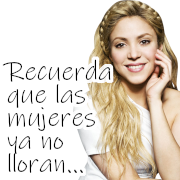
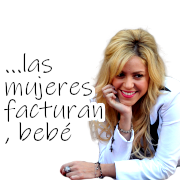
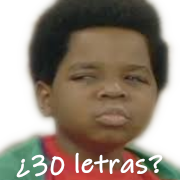
I have been interested in linguistics for some time but my mind refuses to work with certain attributes due to the way I learned things in my school days. Especially when a sound is represented by unfamiliar characters like that of Asian, Russian and even Arabic. This was a really good read. I'm glad I came across it.
OMG! Gracias, de verdad gracias por la opinión.
Como sabe, mi idioma nativo es castellano y de verdad tardé 4 días mas en publicar, porque reflexionaba si traducirlo al inglés o no.
Ciertamente, desde que nacemos, nos vamos acostumbrando a los sonidos comunes a nuestro entorno y luego, nuestros protectores nos enseñan a reconocer esos sonidos en símbolos representados por diferentes grafías que conforman el alfabeto de la lengua que nos corresponde.
Para mi, por ejemplo, "es normal" el sonido de la vocal "A" en castellano y tuve que aprender que su sonido es diferente cuando se trata del idioma inglés. Entonces no sé como representarlo graficamente en ese idioma. Y si lo intentaba, puede que lo lograra, pero me quedarían 4 vocales mas por trabajar.
El post lo traduje con Deepl y lo revisé varias veces. Hice las correcciones que creí conveniente, pero aun no tuve el valor de atreverme a colocar grafías que me ayudaran a representar el sonido para los angloparlantes, por temor a complicarles la comprensión del sonido en castellano, que además, siempre será el mismo.
Pude atreverme a hacerlo, pero estoy seguro que me hubiese complicado mas y renunciado a traducirlo. Evitando que pudiera usted toparse con el y privándome a mi de comunicarme con un entorno ampliado que es lo que busco: comunicarme con mis hermano y compañeros de viaje en esta nave llamada Tierra, en un fantástico tour llamado Vida.
Siga hermosamente guapetona
Feliz día.
OMG! Thank you, really thank you for the feedback.
As you know, my native language is Spanish and it really took me 4 more days to publish it, because I was thinking whether to translate it into English or not.
Certainly, since we are born, we get used to the sounds common to our environment and then, our protectors teach us to recognize those sounds in symbols represented by different spellings that make up the alphabet of the language that corresponds to us.
For me, for example, the sound of the vowel "A" in Spanish is "normal" and I had to learn that its sound is different when it comes to the English language. So I don't know how to represent it graphically in that language. And if I tried, I might succeed, but I would have 4 more vowels to work on.
I translated the post with Deepl and checked it several times. I made the corrections that I thought convenient, but I still didn't have the courage to dare to put spelling that would help me to represent the sound for English speakers, for fear of complicating their understanding of the sound in Spanish, which will always be the same.
I could have dared to do it, but I am sure that it would have been more complicated and I would have given up translating it. Avoiding that you could come across it and depriving me of communicating with an extended environment which is what I am looking for: to communicate with my brothers and fellow travelers on this ship called Earth, in a fantastic tour called Life.
Keep on beautifully beautiful
Happy day.
It was difficult for me to learn English, no one in my family knew English so I had no one to practice with except the teacher.
But there is no difficulty that one cannot overcome when one wants to. Have a good day.
The rewards earned on this comment will go directly to the people( @alummno ) sharing the post on Twitter as long as they are registered with @poshtoken. Sign up at https://hiveposh.com.
Very good account of your experiences in school activities. It is very similar to what I also experienced in my elementary school days. Although when I learned letters and numbers, I discovered a wonderful world with which I could express what was in my mind. When I was 6 years old I used to write about things that happened in my house until my parents noticed and vetoed it. As for the numbers I "invented" the numbers from one to 100, because in class they only explained me the ten number signs and the combinations up to the number 20, I invented the others....
Greetings @alummno bolivariano
Muy bueno el recuento de tus experiencias dentro de las actividades escolares. Se parece mucho a lo que también viví en mi época de primaria. Aúnque cuando aprendí las letras y números, descubrí un mundo maravilloso con lo cual podía expresar lo que había en mi mente. Teniendo 6 años escribía de las cosas que pasaban en mi casa hasta que se dieron cuenta mis padres y lo vetaron. En cuanto a los números "inventé" los números del uno al 100, porque en la clase solo me explicaron los diez signos numéricos y las combinaciones hasta el número 20, los demás los inventé Yo...
Saludos @alummno bolivariano
No puedo votar al 100% porque me dice que no tengo poder 😣
Hola hermano... Deseo estés excelente.
Que interesante eso de que inventaste los demás número...
Pero ¿debo entender que los demás los descubriste por analogía del orden primario?
Eso es ingenio, entonces..
Tenía solo 6 o 7 años cuando me creí que los había inventado... jajaja!
Un consejo:
Es muy bueno hacer votaciones diarias, pero éstas deben ser limitadas; es decir, no te excedas votando porque pierdes los créditos de recursos, entonces debes esperar uno o dos días para recuperarlos, sin poder volver a votar o publicar mientras eso sucede. Has votaciones y comentarios diarios como entre 15 a 20 diarios o algo así. Lo que tu consideres que no te baje dichos créditos de recursos. Para que no te quedes con los bolsillos vacios recien cobrada la quincena (risas).
Saludos @alummno bolivariano
jejejejejejeejeje Que bueno es ser niño. Porque cuando somos niños, nos empoderamos con cosas simples que nos hacen merecedores de vivir el mundo a plenitud.
Esa dulce inocencia nos eleva el autoestima, haciéndonos "capaces" de lo que sea.
No hay dificultad para nosotros (los niños)
Copiado, profe.. (creo) Nunca sabré cuando es suficiente... pero si! Me he quedado sin recursos.
Gracias, muchas gracias.
Sigan hermosamente guapetones.
Así que de ser @alummno ahora eres profesor de castellano y literatura. ¡Bien por tí...!
Este es un buen trabajo. Felicitaciones!
Saludos mi buen amiguito oriental.
Que bellos los dos.
Gracias por comentar.
Sigan hermosamente guapetones...
Aprendí a leer con el libro mi jardín.
Ese que dices mas Coquito y Mi Angelito, fueron tres textos que estaban en la casa de mi tío y en la casa de mi abuela.
No tenía escapatoria.
Me gustó rememorar esas cositas y otras que vinieron a mi mente...
Gracias por venir, mi guapa.
Saludos y bendiciones para ti.